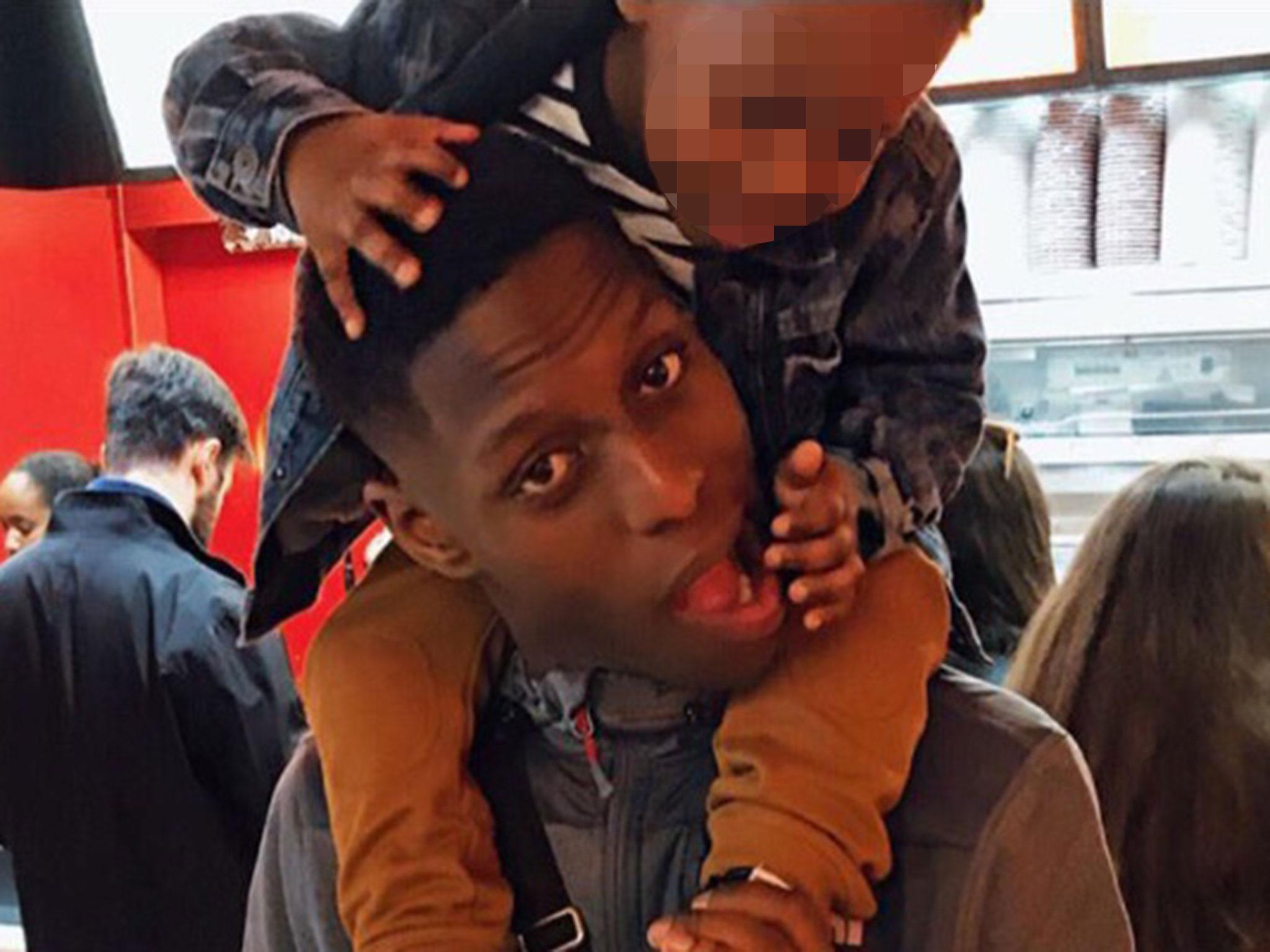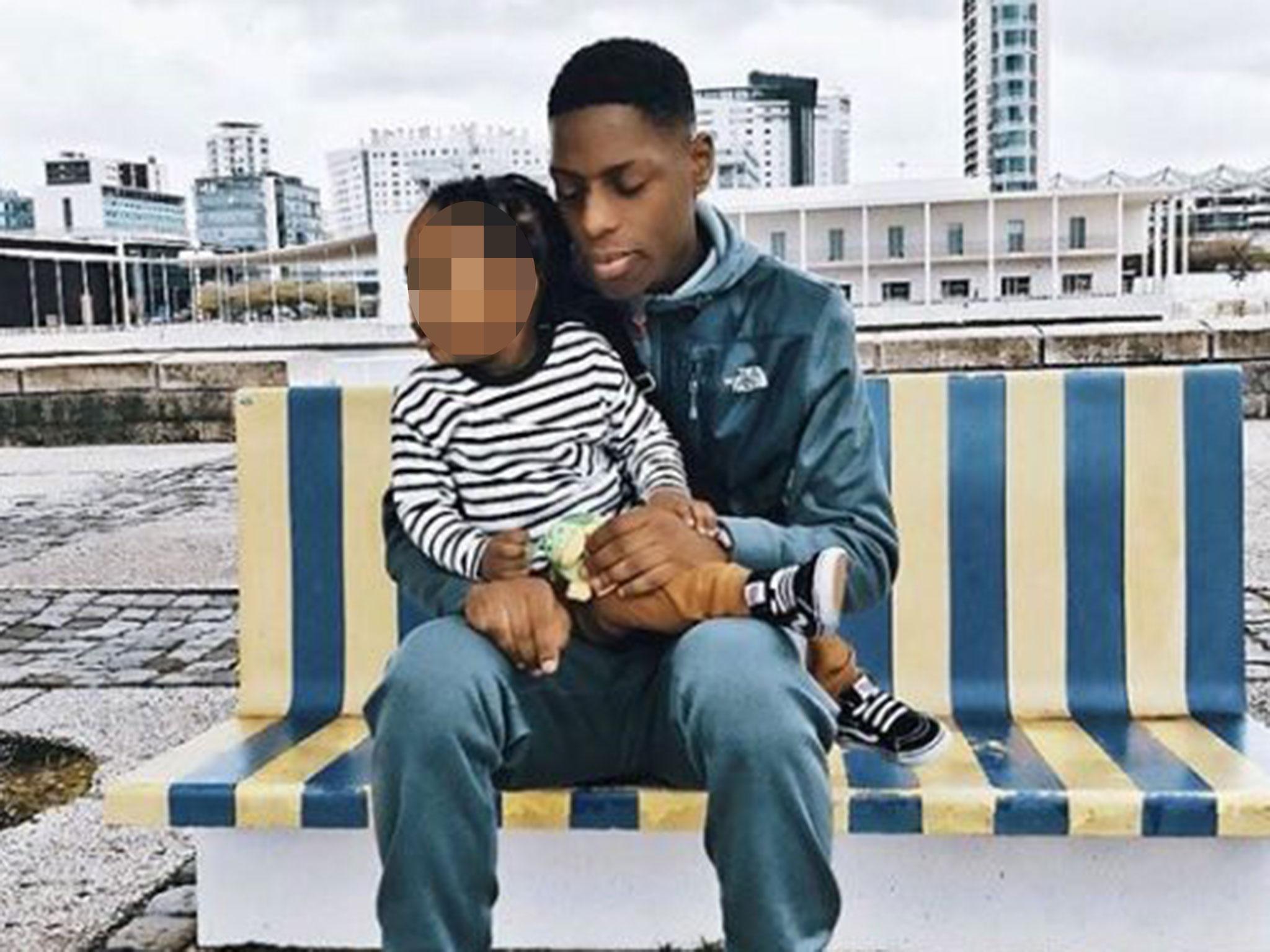Edson Da Costa: Force used against young black father who died after police restraint was 'proportionate', watchdog finds
Police officers keep jobs after 'management action' over use of CS spray, delay calling ambulance and 'preconceptions about driver’s age, race and gender'

The force used against a young black father who died after being restrained by police was “proportionate”, a watchdog has found.
Edir “Edson” Da Costa, 25, was detained in Beckton, east London, on 15 June 2017 and died days later in hospital.
The Independent Office for Police Conduct (IOPC) said he “attempted to swallow a number of bags which were later found to contain crack cocaine and heroin” when police stopped the car he was travelling in.
“While detaining Mr Da Costa the officers restrained him with handcuffs including one officer using CS spray and Mr Da Costa lost consciousness,” a spokesperson added. “A second team of officers arrived at the scene and carried out first aid. An ambulance was called and he was taken to hospital.
“He did not regain consciousness and died on 21 June 2017.”
Mr Da Costa’s mother, Manuela Araujo, fell ill following his death and died suddenly in Portugal in August 2017. Her family attributed the 45-year-old’s passing to shock over her son’s death.
Five Metropolitan Police officers were investigated and the IOPC said it looked at the reason for the stop, force used, level of medical care provided and potential discrimination.
The IOPC said it “concluded the use of force in restraining him was necessary and proportionate” but one officer may have committed misconduct over his use of CS spray.
“The same officer and two others should receive management action over the speed in which they called London Ambulance Service and one of those officers receive management action over providing incorrect information about Mr Da Costa’s condition,” a spokesperson added.

His father, Ginario Da Costa, said: “Edir’s death at such a young age devastated us as a family and undoubtedly resulted in his mother’s passing a few weeks later.
“While dealing with this double tragedy we were confronted with the shocking news that the officers involved in his death refused to be interviewed by the IOPC as part of their investigation. We have been left with many unanswered questions due to the officers’ refusal to cooperate. We are desperate for the truth, and hope that the upcoming inquest will provide the answers that the IOPC have been unable to deliver.”
The Independent understands that all officers attended IOPC interviews but provided prepared statements and used their right to provide no comment to further questioning.
Victoria McNally, a caseworker at Inquest, said the IOPC’s findings should be decided by an inquest jury alone and could amount to prejudice.
“We have contacted the director general of the IOPC to raise our serious concerns,” she added.
Susie Labinjoh, a partner at Hodge Jones and Allen, which represents the family, said it was “misguided” of the IOPC to release its findings before the inquest.
In the immediate aftermath of the incident, relatives claimed a doctor told them he suffered extensive injuries including a broken neck.
But the IOPC said the post-mortem report states that Mr Da Costa did not suffer a fracture of the neck or spinal injury, nor a broken collarbone or bleed on the brain and gave his cause of death as a lack of oxygen to the brain caused by a blocked airway.
Campaigners claiming that Mr Da Costa had been “brutally beaten” held a protest that degenerated into violence in June 2017, which saw police officers injured as bins were set alight.
A fourth officer is also to receive “management action” over comments made in a statement that “revealed preconceptions the officer may hold about the driver’s age, race and gender”.
The IOPC said the comment did not “impact upon his treatment of the driver and was thus not deemed discriminatory”.
Investigators said there was no wider indication that the officers’ decision to stop the Mercedes Mr Da Costa was travelling in with two friends was discriminatory.
They concluded that the decision was justified as part of an operation focused on gang-related activity.
All five officers have been on restricted duties since the start of the investigation, but their status will be reviewed as a result of the IOPC’s findings.
Four are expected to return to work with no further disciplinary action beyond “management action”, while the man who deployed CS spray could face an internal misconduct hearing.
Mr Da Costa’s death came little over a month before that of another young black man, Rashan Charles.
Their deaths drew national attention to the treatment of black men by police and how officers should deal with suspects trying to swallow packages or conceal them in their mouths.
The IOPC said the investigation into Mr Da Costa’s death showed that conflicting advice had been given to different police forces around the country, and that the Metropolitan Police had voluntarily suspended mouth-searching in suspected drugs cases.
Jonathan Green, regional director of the IOPC, said: “Edir’s death has had a devastating impact upon his family and friends, and our thoughts remain with all of those affected.
“At the outset of our investigation a large amount of conflicting information began circulating regarding what happened to Edir.
“We have attempted, when possible, to provide information to counter this, and have taken the step of announcing our findings ahead of the inquest in the interests of transparency.
“We have conducted a rigorous investigation that has revealed a number of areas of concern regarding the actions of four officers. The Metropolitan Police has agreed with this conclusion and action will be taken.
“It will be for an inquest, scheduled for next year, to determine how Edir died.”
The IOPC’s latest annual statistics show that deaths in or following police custody have hit a 10-year-high.
Of the 23 fatalities in 2017-18, including Mr Da Costa and Mr Charles, 17 had been restrained or had force used against them by the police or others before their deaths.
More than half (12) had mental health concerns and over 75 per cent (18) had links to drugs and/or alcohol. Of the 17 who were restrained, nine were white and eight were black.
